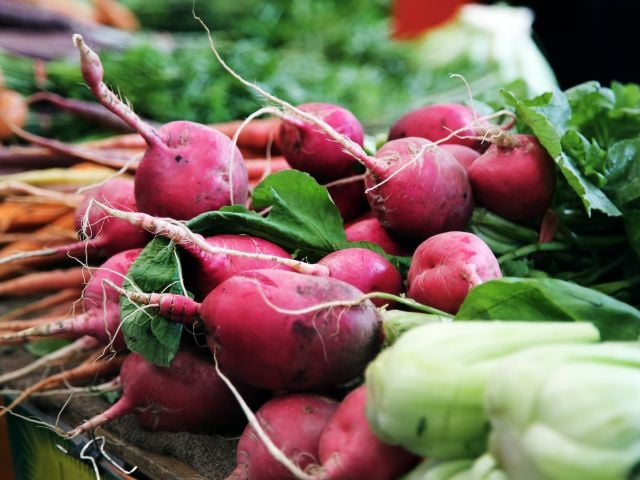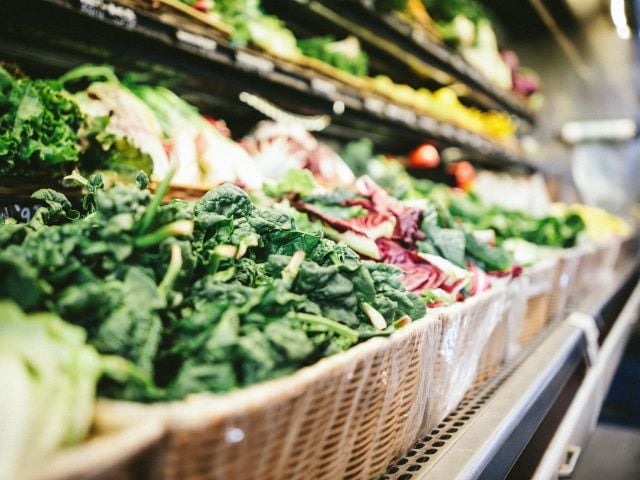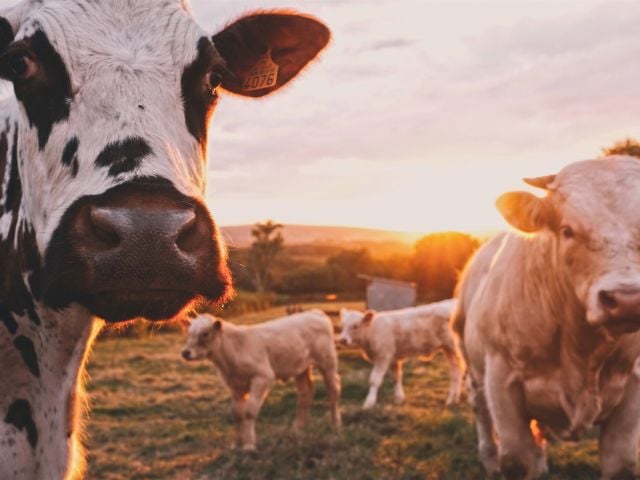Most animals raised for meat, milk and eggs are on industrial farms that contaminate our air, soil and water. These farms rely heavily on antibiotics and other synthetic treatments to boost outputs, and combat diseases caused by stressful, crowded and unsanitary conditions. Weak bacteria are killed, leaving behind the most resilient and hard to kill — so-called “superbugs.” These bacteria are capable of causing untreatable infections.
On the other hand, better practices, such as raising animals on pasture, have documented positive effects on the planet and on the quality of the meat and milk.
Some companies have committed to more responsible practices. Yet shoppers can find it difficult to tell which claims on labels represent truly responsible practices. In fact, so called “free range” chickens may have very little access to the outdoors and “natural” meat products may still be from animals fed antibiotics critical to human health.
To help you find the most reliable labels and avoid deceptive claims, EWG reviewed and ranked common label claims for meat, dairy and eggs.
Choose one...
SEAFOOD
BEEF
PORK
BISON
GOAT
LAMB
CHICKEN
TURKEY
EGGS
MILK
Most Reliable
EWG’s most reliable certifications are those that follow these best practices:
 No antibiotics given to healthy animals
No antibiotics given to healthy animals No synthetic growth hormones
No synthetic growth hormones No cages allowed and outdoor access required
No cages allowed and outdoor access required More space to allow for natural behaviors
More space to allow for natural behaviors Strong third-party verification
Strong third-party verification Frequent on-farm inspections (every 12 to 36 months)
Frequent on-farm inspections (every 12 to 36 months)
The criteria of these certifying bodies differ slightly, as does their availability on store shelves.
American Grassfed AssociationAnimal Welfare ApprovedCertified HumaneUSDA OrganicFood Alliance Certified-GrassfedGlobal Animal PartnershipMarine Stewardship Council
Less Reliable
Other third-party standards set a lower bar. Some label claims are subject to minimal scrutiny, or lack a uniform definition or federal standard to ensure consistency across producers.
American Humane CertifiedNo AntibioticsNo Beta AgonistsFarmed Responsibly ASC CertifiedGrass-fedHeritage BreedsPasture RaisedNot treated with rBGH/rBSTOrganic SeafoodSustainable SeafoodVegetarian FedUSDA Process VerifiedWild-Caught/Wild Fish
Be Wary
These terms can be deceptive or misleading. For example, some producers market their pork and chicken meat as “hormone free” even though growth-boosting hormone treatments are never allowed for use on these animals. “Cage-free” layer chickens are often stuffed in crowded indoor sheds with no space to walk or flap their wings. And even though “free range” chickens must have access to the outdoors, there is no requirement that they actually leave their shed.
Animal Welfare ReviewCage FreeFree-rangeNo Hormones AddedHumanely RaisedFarmed FishLean/Extra LeanNaturalNo Nitrates or Nitrites AddedOmega-3 Fortified Eggs and Milk



